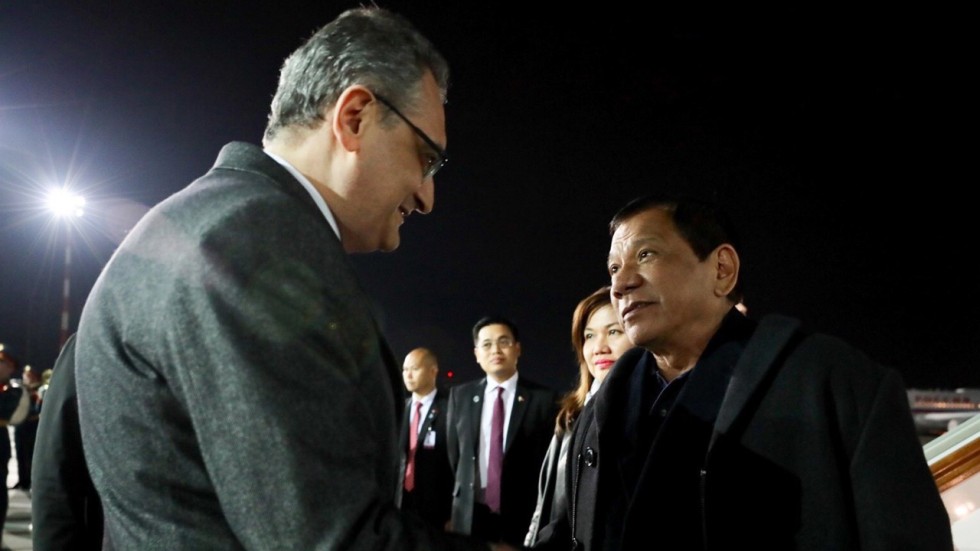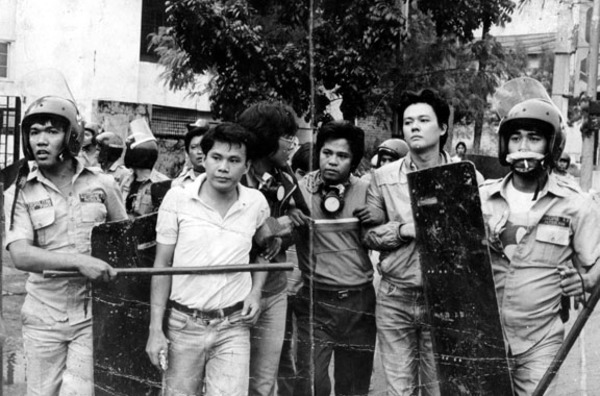


They perceived the phrase “imminent danger” to be “fraught with possibilities of abuse ” besides, the calling out power of the President “is sufficient for handling imminent danger.” The framers of the 1987 Constitution eliminated insurrection, and the phrase “imminent danger thereof’ as grounds for the suspension of the privilege of the writ of habeas corpus or declaration of martial law. (3) review and possible nullification by the Supreme Court.(2) review and possible revocation by Congress and.The 1987 Constitution imposed the following limits in the exercise of these powers: The extraordinary powers of suspending the privilege of the writ of habeas corpus and/or declaring martial law may be exercised only when there is actual invasion or rebellion, and public safety requires it. Suspending the writ Declaring Martial Law In fact, the actual use to which the President puts the armed forces is not subject to judicial review.” The power to call is fully discretionary to the President the only limitations being that he acts within permissible constitutional boundaries or in a manner not constituting grave abuse of discretion. The President may resort to this extraordinary power whenever it becomes necessary to prevent or suppress lawless violence, invasion, or rebellion. This so-called “graduation of powers” does not dictate or restrict the manner by which the President decides which power to choose.Īmong the three extraordinary powers, the calling out power is the most benign and involves ordinary police action. It does not in any manner refer to a sequence, arrangement, or order which the Commander-in-Chief must follow.

The graduation refers only to hierarchy based on scope and effect. the power to suspend the privilege of the writ of habeas corpus From the most to the least benign, these are: The President is granted a “sequence of graduated powers” under Section 1 of Rule VII. The suspension of the privilege of the writ shall apply only to persons judicially charged for rebellion or offenses inherent in or directly connected with the invasion.ĭuring the suspension of the privilege of the writ, any person thus arrested or detained shall be judicially charged within three days, otherwise he shall be released. The Supreme Court may review, in an appropriate proceeding filed by any citizen, the sufficiency of the factual basis of the proclamation of martial law or the suspension of the privilege of the writ or the extension thereof, and must promulgate its decision thereon within thirty days from its filing.Ī state of martial law does not suspend the operation of the Constitution, nor supplant the functioning of the civil courts or legislative assemblies, nor authorize the conferment of jurisdiction on military courts and agencies over civilians where civil courts are able to function, nor automatically suspend the privilege of the writ. The Congress, if not in session, shall, within twenty-four hours following such proclamation or suspension, convene in accordance with its rules without any need of a call. Upon the initiative of the President, the Congress may, in the same manner, extend such proclamation or suspension for a period to be determined by the Congress, if the invasion or rebellion shall persist and public safety requires it. The Congress, voting jointly, by a vote of at least a majority of all its Members in regular or special session, may revoke such proclamation or suspension, which revocation shall not be set aside by the President. Within forty-eight hours from the proclamation of martial law or the suspension of the privilege of the writ of habeas corpus, the President shall submit a report in person or in writing to the Congress. In case of invasion or rebellion, when the public safety requires it, he may, for a period not exceeding sixty days, suspend the privilege of the writ of habeas corpus or place the Philippines or any part thereof under martial law. The President shall be the Commander-in-Chief of all armed forces of the Philippines and whenever it becomes necessary, he may call out such armed forces to prevent or suppress lawless violence, invasion or rebellion.

The constitutional provisions on Martial Law - as contained in Section 18, Article VII of the Constitution - is intended to provide additional safeguard against possible abuse by the President in the exercise of his power to declare martial law or suspend the privilege of the writ of habeas corpus. Section 18 contains six paragraphs, and reads in full:


 0 kommentar(er)
0 kommentar(er)
